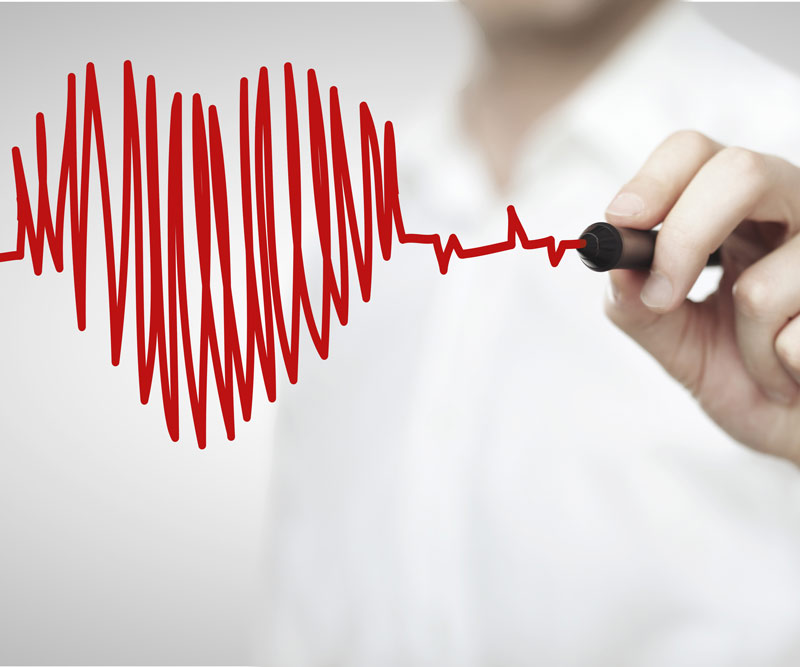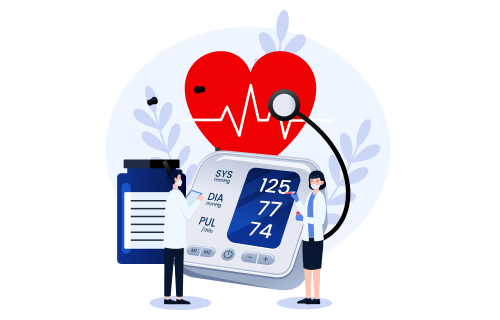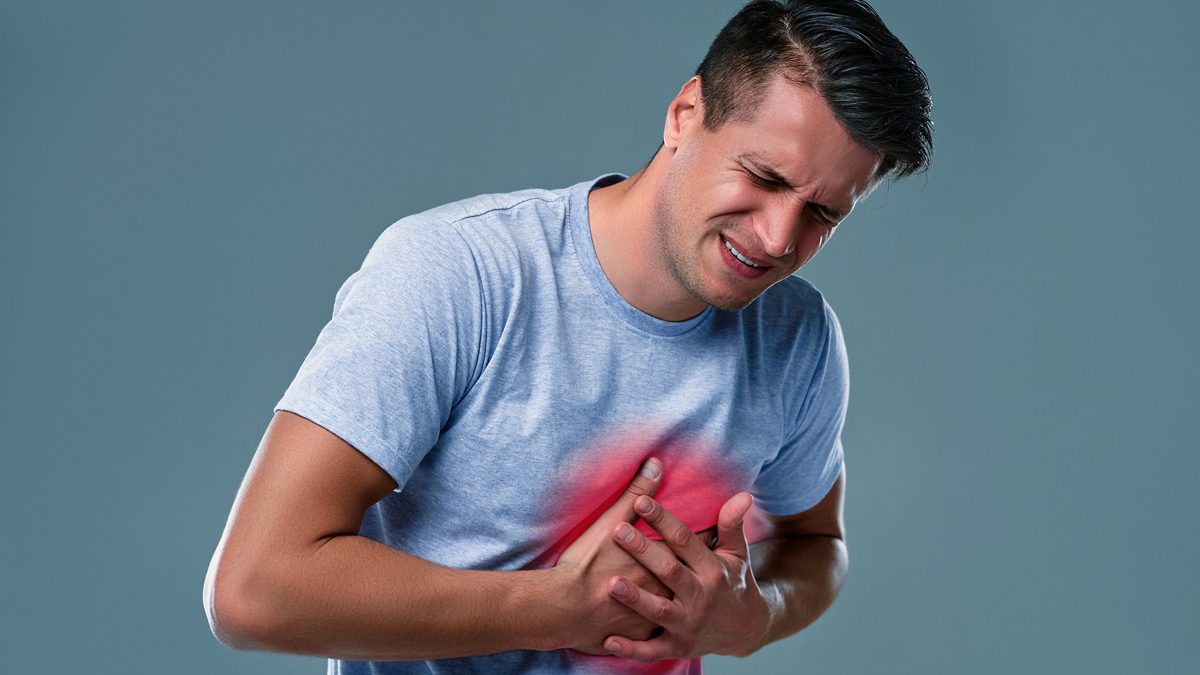When most people think about chest pain, the first thing that comes to mind is a heart attack or another heart-related condition. While it’s true that the heart is often linked to chest discomfort, it’s not always the culprit. Many other health issues—ranging from digestive problems to muscle injuries—can cause pain in the chest area.
Understanding these causes is important because not every chest pain means a cardiac emergency, but at the same time, it should never be ignored. In this guide, we’ll explore common non-heart-related causes of chest pain, how they feel different from cardiac pain, and when you should still see a doctor.
Why Chest Pain Isn’t Always About the Heart
The chest is a busy part of the body—it houses not just the heart, but also the lungs, esophagus, muscles, ribs, and even parts of the digestive system. Any issue with these structures can create sensations of pain, tightness, burning, or pressure that can mimic heart-related problems.
That’s why chest pain can be confusing. Sometimes it’s something mild, like indigestion, and other times it can be serious, like a blood clot in the lungs. Paying attention to the type, location, and duration of the pain can help you (and your doctor) figure out the cause.
Common Causes of Chest Pain Besides Heart Problems
1. Gastroesophageal Reflux Disease (GERD) and Acid Reflux
One of the most common non-heart causes of chest pain is acid reflux. When stomach acid flows back into the esophagus, it can create a burning sensation known as heartburn.
- How it feels: Burning pain behind the breastbone, often worse after eating or lying down.
- Other signs: Sour taste in the mouth, regurgitation of food, chronic cough.
GERD can be managed with lifestyle changes such as avoiding spicy foods, eating smaller meals, not lying down right after eating, and sometimes with medications.
2. Musculoskeletal Pain (Muscle Strain or Injury)
The chest is surrounded by muscles, ligaments, and cartilage. Lifting heavy objects, overexercising, or even poor posture can strain these muscles and lead to pain.
- How it feels: Sharp or aching pain that worsens with movement, deep breaths, or pressing on the chest area.
- Common causes: Exercise injuries, coughing fits, or even sleeping in an awkward position.
Unlike heart pain, musculoskeletal chest pain is often very localized and can be reproduced when the area is touched.
3. Costochondritis
Costochondritis is the inflammation of the cartilage that connects the ribs to the breastbone. It’s a frequent cause of chest pain in both adults and teenagers.
- How it feels: Sharp, aching, or pressure-like pain that worsens when taking a deep breath or pressing on the affected ribs.
- Other signs: Pain usually occurs on one side of the chest rather than the center.
Though alarming, costochondritis is usually harmless and improves with rest, anti-inflammatory medications, and gentle stretching.
4. Anxiety and Panic Attacks
Stress and anxiety can cause chest pain that feels very similar to a heart attack. Panic attacks, in particular, can trigger intense chest discomfort along with other frightening symptoms.
- How it feels: Tightness or pressure in the chest, rapid heartbeat, sweating, dizziness, and shortness of breath.
- Other signs: Fear of losing control, trembling, tingling in the hands or feet.
While panic-related chest pain isn’t life-threatening, it’s very real and can be debilitating. Therapy, stress management techniques, and sometimes medication can help.
5. Lung Conditions
Several lung-related problems can cause chest pain:
- Pleurisy: Inflammation of the lining of the lungs, causing sharp pain with breathing.
- Pulmonary Embolism (PE): A blood clot in the lungs that causes sudden, severe chest pain, shortness of breath, and rapid heartbeat—this is a medical emergency.
- Pneumonia: An infection in the lungs that may cause chest discomfort, fever, and cough.
Lung-related chest pain often worsens with deep breaths or coughing.
6. Digestive Issues Beyond GERD
Apart from acid reflux, other digestive problems can mimic chest pain:
- Gallstones: Can cause pain in the upper right abdomen that radiates to the chest.
- Hiatal hernia: When part of the stomach pushes through the diaphragm, leading to chest pressure or burning.
- Esophageal spasms: Sudden, abnormal contractions of the esophagus that feel like intense chest pain.
7. Shingles (Herpes Zoster)
Shingles is caused by the reactivation of the chickenpox virus. When it affects nerves in the chest area, it can cause pain before the rash even appears.
- How it feels: Burning or tingling pain on one side of the chest, followed by a blistery rash.
- Other signs: Skin sensitivity and itching in the affected area.
How to Tell If Chest Pain Is Heart-Related or Not
It’s not always easy to distinguish heart pain from other types of chest pain. However, some patterns can help:
| Heart-Related Chest Pain | Non-Heart Chest Pain |
|---|---|
| Feels like pressure, squeezing, or heaviness | Sharp, stabbing, or burning |
| May radiate to arm, neck, or jaw | Often localized in one spot |
| Often triggered by physical exertion | Can worsen with movement or deep breaths |
| May come with sweating, nausea, shortness of breath | May come with cough, indigestion, or tenderness when touched |
Important: If you’re unsure, treat chest pain as serious and seek medical help immediately.
When to Seek Emergency Help
Not all chest pain is caused by the heart, but you should never take chances. Call emergency services right away if you experience:
- Sudden, severe chest pain that doesn’t improve with rest
- Pain spreading to the arm, jaw, or back
- Chest tightness accompanied by sweating, nausea, or fainting
- Shortness of breath, especially if sudden or severe
- A history of heart disease with new or unusual chest discomfort
It’s always better to get checked and be told it’s “just indigestion” than to ignore a possible emergency.
Conclusion
Chest pain doesn’t always mean a heart attack, but it’s never something to brush off. From acid reflux and muscle strain to lung infections and anxiety, many conditions can cause discomfort in the chest area. Understanding the differences can help you respond appropriately, but only a healthcare professional can give you a clear diagnosis.
If you experience chest pain, especially for the first time or if it’s severe, seek medical advice. Your health and peace of mind are worth it.
FAQs About Chest Pain (Non-Heart Related)
1. Can gas really cause chest pain?
Yes, trapped gas in the stomach or intestines can create pressure that radiates into the chest, often mimicking heartburn or cardiac pain.
2. How do I know if my chest pain is from anxiety?
If your chest pain comes with rapid heartbeat, sweating, trembling, or feelings of panic, it may be anxiety-related. However, you should still rule out heart problems with a doctor.
3. Can poor posture cause chest pain?
Absolutely. Slouching for long periods puts pressure on chest muscles and can cause pain or discomfort.
4. Is chest pain from costochondritis dangerous?
Costochondritis itself isn’t dangerous, but since its pain can feel like heart pain, it’s important to confirm the diagnosis with a doctor.
5. Should I go to the ER for chest pain even if I think it’s acid reflux?
Yes, if the pain is severe, sudden, or you’re unsure. Acid reflux pain can sometimes mimic heart attack symptoms, so it’s better to be safe.
Social Sharing
Your Content Goes Here
Latest Posts





